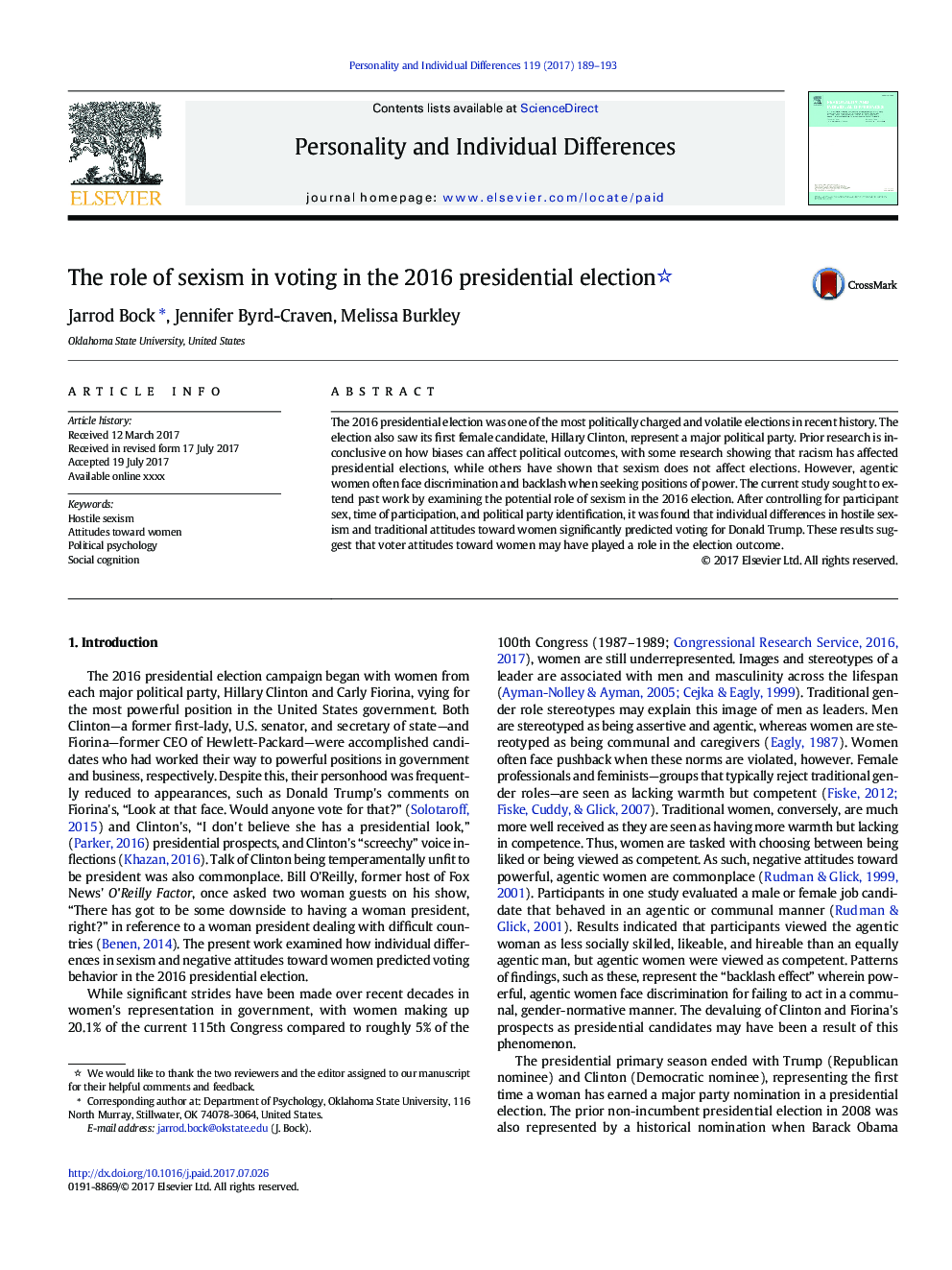| Article ID | Journal | Published Year | Pages | File Type |
|---|---|---|---|---|
| 5035673 | Personality and Individual Differences | 2017 | 5 Pages |
Abstract
The 2016 presidential election was one of the most politically charged and volatile elections in recent history. The election also saw its first female candidate, Hillary Clinton, represent a major political party. Prior research is inconclusive on how biases can affect political outcomes, with some research showing that racism has affected presidential elections, while others have shown that sexism does not affect elections. However, agentic women often face discrimination and backlash when seeking positions of power. The current study sought to extend past work by examining the potential role of sexism in the 2016 election. After controlling for participant sex, time of participation, and political party identification, it was found that individual differences in hostile sexism and traditional attitudes toward women significantly predicted voting for Donald Trump. These results suggest that voter attitudes toward women may have played a role in the election outcome.
Keywords
Related Topics
Life Sciences
Neuroscience
Behavioral Neuroscience
Authors
Jarrod Bock, Jennifer Byrd-Craven, Melissa Burkley,
